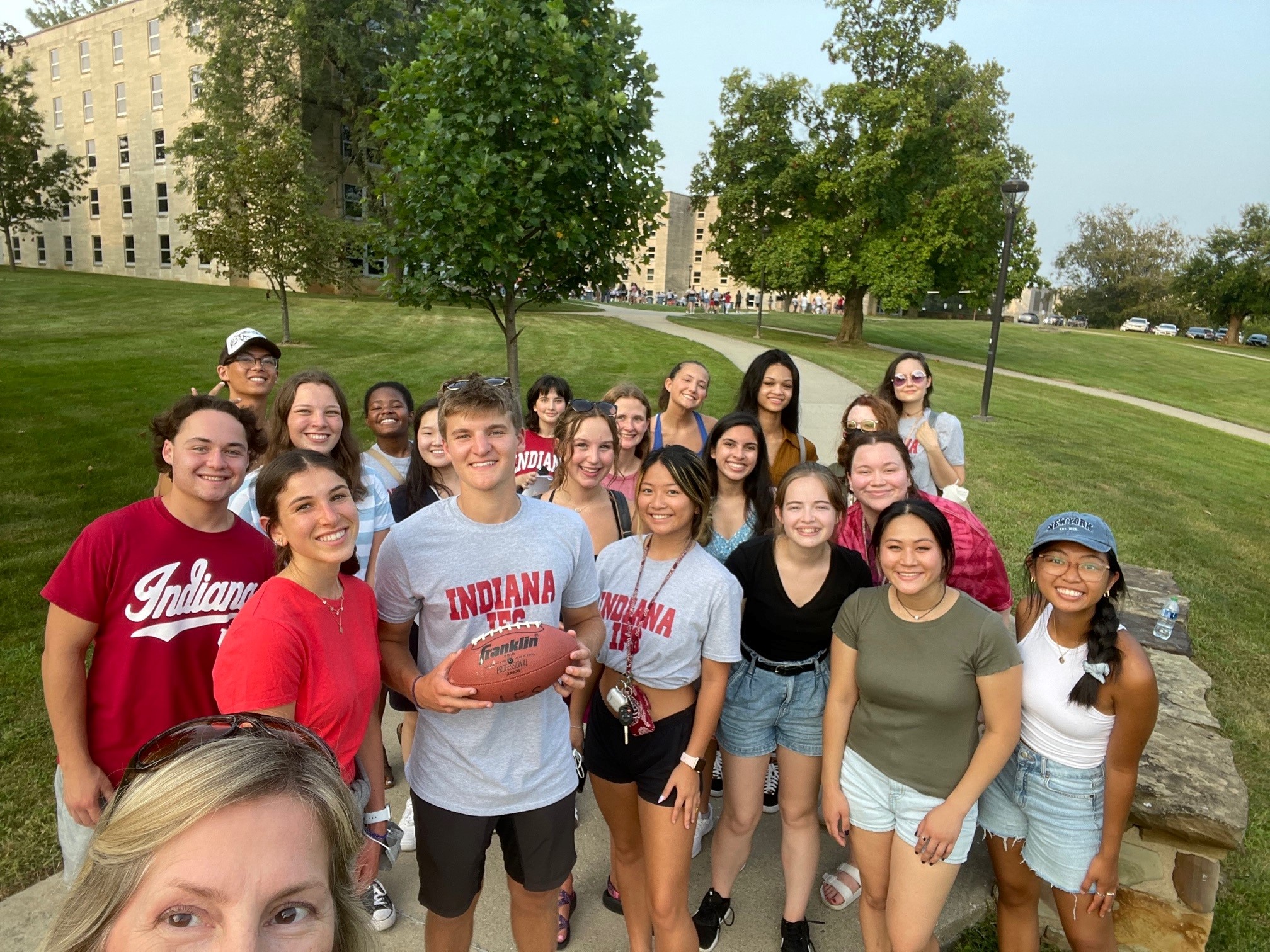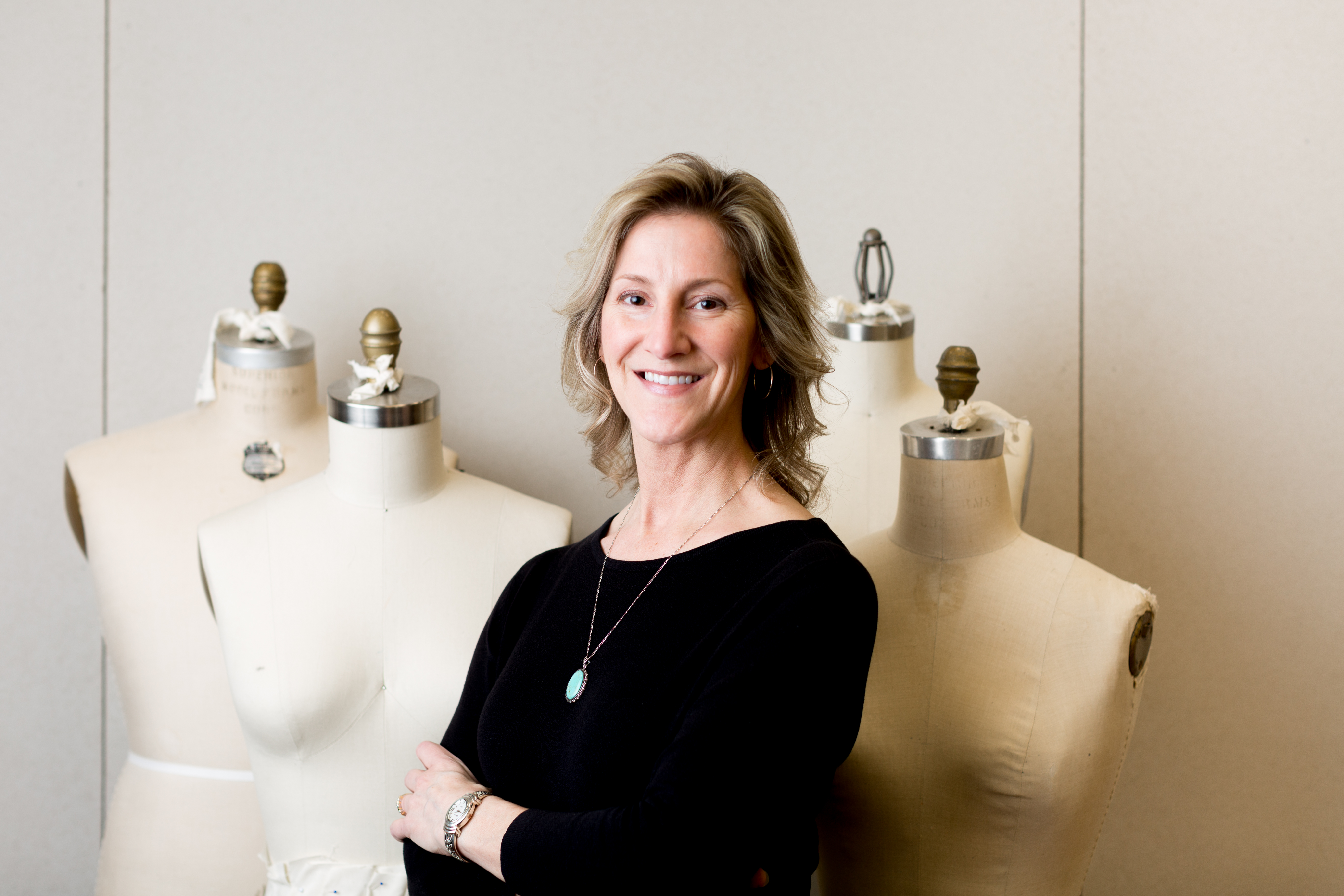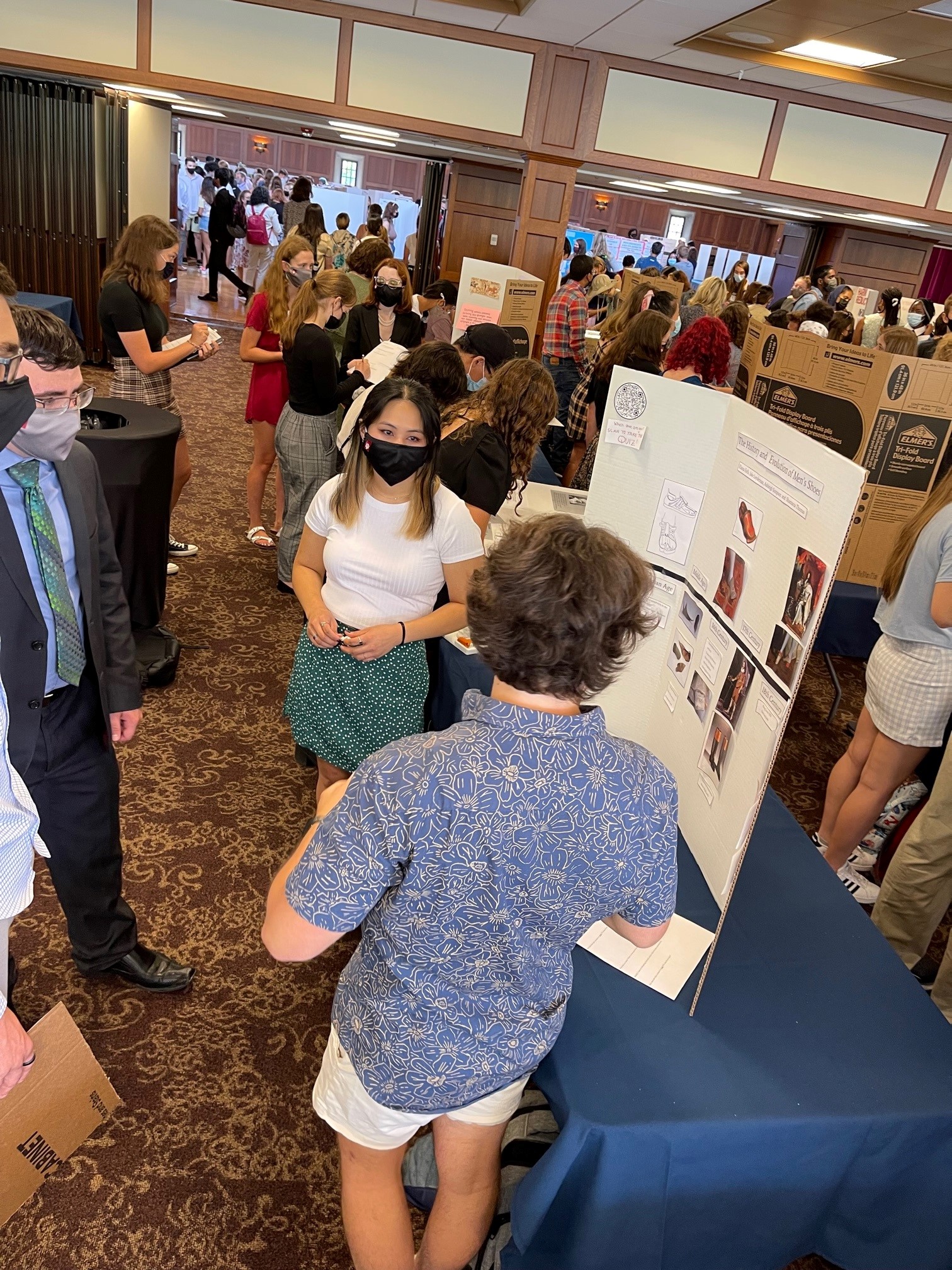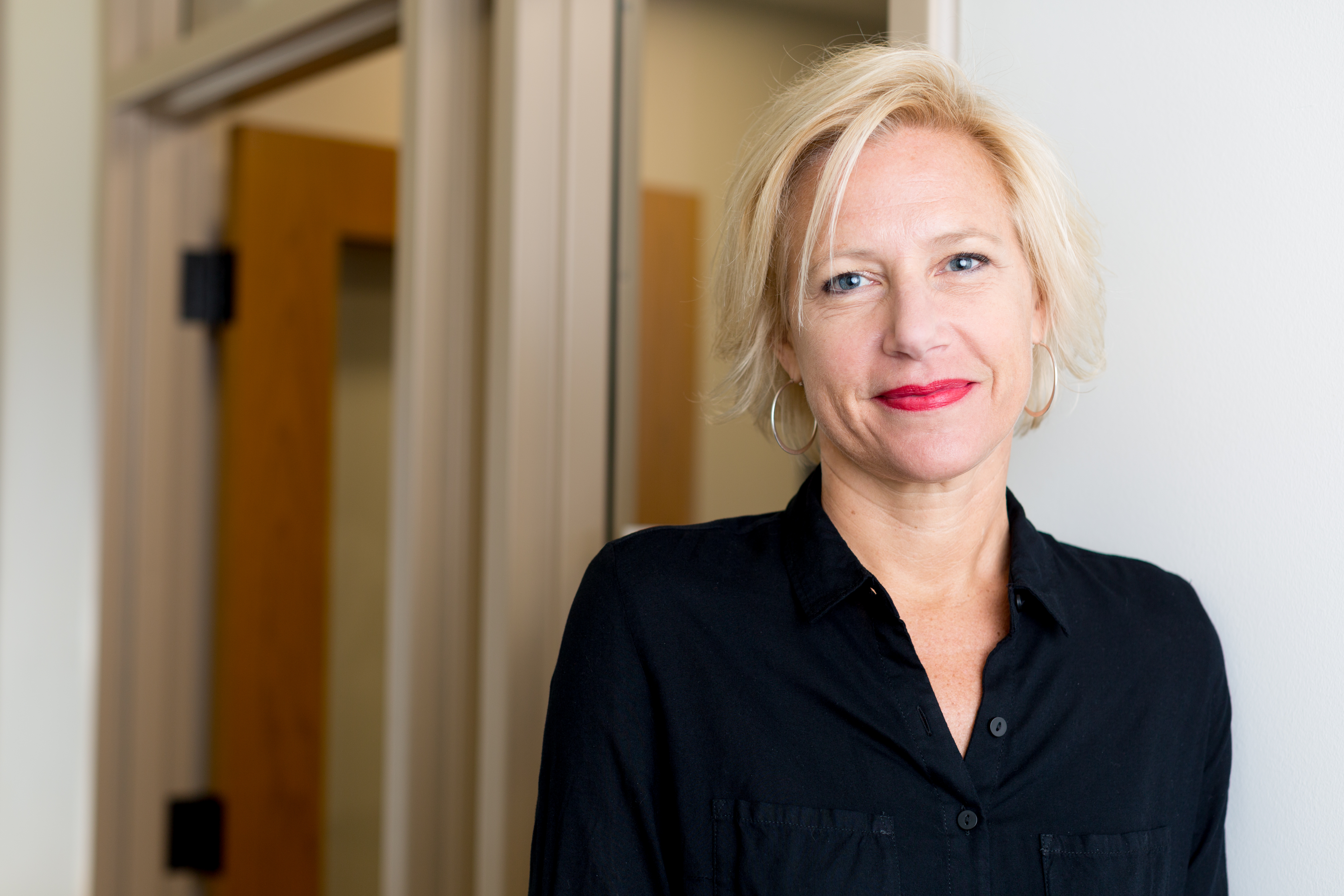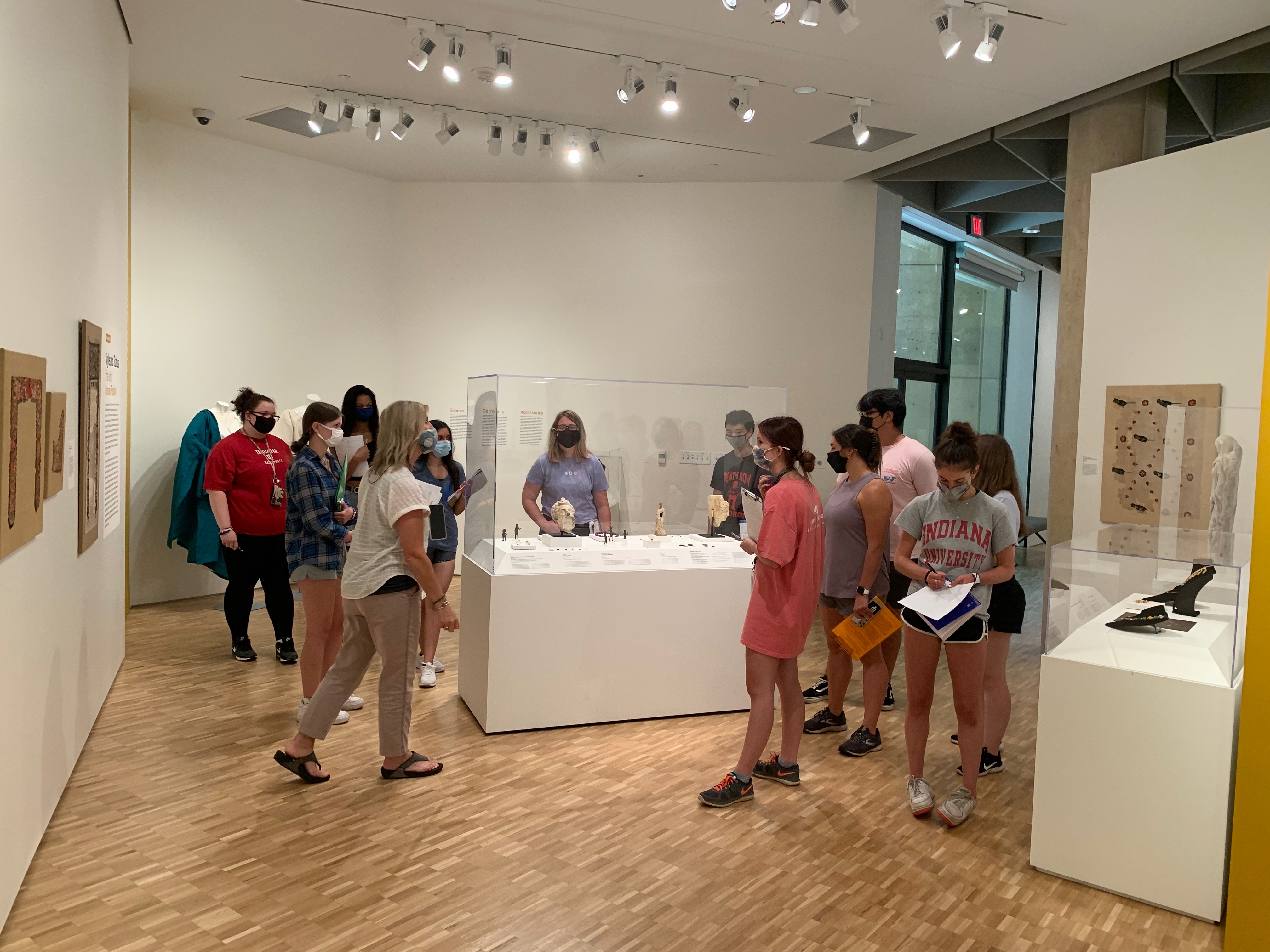This week, some freshmen who have arrived early on the Indiana University Bloomington campus are jumpstarting their first year with a quick, deep dive into a cutting-edge topic. Queer activism, psychoactive drugs, and fast fashion are just some of the issues they might explore in Intensive Freshman Seminars (IFS). Two senior lecturers in the Eskenazi School of Art, Architecture + Design are among the leading IU faculty teaching these intimate, two-and-a-half week courses. The program gets students thinking critically and across disciplines while getting acclimated to IU, forming social bonds with other incoming freshman, and knocking out three credit hours before the fall semester begins.
Regardless of their intended major, students participating in the IFS program are free to select among the courses offered. “I primarily end up with students who are not going to be art or design majors,” says Deb Christiansen, who is teaching “Fashioning Identity: Art Artifacts & Fashion Theory.” The diversity of students in the freshman seminar prompts the senior lecturer in Fashion Design to introduce them to as many areas of study and university resources as possible. In this way, fashion functions as a gateway through which to explore ideas and systems.
I dress, therefore I am
So, Christiansen’s students won’t be cutting or draping fabric. Rather, the course asks students to consider how fashion intersects with identity – both personal and collective. Students will be introduced to the many global forces – economic, cultural, environmental, religious – that inform fashion adoption and diffusion, and the ways personal identity can nonetheless be expressed through the things we wear. Christiansen’s students won’t be the only ones on campus thinking about the way we construct and express identity this fall. The freshman seminar is part of the coordinated programming offered through the College of Arts and Sciences’ Themester 2022: Identity and Identification. Along with courses, Themester comprises a cross-disciplinary array of lectures, films, exhibitions, and performances exploring the theme from different perspectives and connecting across campus.
What does one wear to a climate emergency?
Whether or not students intend to pursue fashion as an area of study, it is a common denominator in all our lives. “We all participate in fashion,” says Mary Embry, senior lecturer in Merchandising and Fashion Design, who will teach the Hudson and Holland IFS course, "Fashion Consumption in a Climate Emergency." “Understanding the connection of fashion to our values and identity has larger implications than seen on the surface,” Embry proposes.
Embry’s course asks students to look at the fashion industry with an eye to its impact on environmental, social, and economic sustainability. “The fashion industry could have a world-changing impact on climate change and economic development in places that are under-resourced if consumers, businesses, and governments worked to support and implement ecologically sound materials, circularity, and attention to human rights,” says Embry. Her course introduces students to companies that are making a commitment to sustainability and challenges students personally to reflect on what they buy, how it is used, and where it goes. Like Christiansen’s course, Embry’s starts small and goes big: the question of what to wear prompts an exploration of economics, history, politics, culture, and more.
A classroom as big as the campus (or beyond)
That exploration is also a literal one – both courses provide experiential learning with the added value of introducing the new IU students to the university’s resources. Christiansen’s students come face to face with artifacts related to dress and material culture in the Eskenazi Museum of Art, the Sage Collection, the Lilly Library, the Kinsey Institute, and the Museum of Archaeology and Anthropology.
Students in the fashion consumption course visit campus green spaces through a scavenger hunt, explore the campus farm and Hilltop Garden, take bus rides, dine in zero-waste facilities, and visit local, fair-trade, vegan, and cooperatively operating Bloomington establishments. The classes team up for excursions to destinations beyond the campus walls, including Indianapolis, where they will visit Newfields (Indianapolis Museum of Art) and People for Urban Progress (PUP), a nonprofit that salvages detritus to create products that fund urban reuse projects.
The field trips bridge academic subjects with real-world undertakings and invite students to cross over. “Ultimately,” Embry writes, “this course asks students to be empowered to contribute to larger conversations of sustaining communities and nations, as well as individual actionable goals.”
“As educators,” said Christiansen, Executive Director of Academics for the Eskenazi School, “we are more interested in producing holistically successful graduates than specifically trained workers. [These courses] use the discipline of dress and appearance to connect to the broader world and … [to] the academic tools necessary for a successful college career.”


